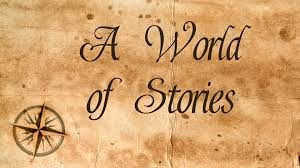 Speaking with some people in their mid 30’s I was sad to hear how many of them view reading as a means to an end—they very much coral their reading into the world of prescriptive nonfiction‚ believing what they cannot quantify, such as the value of reading fiction, is of little value.
Speaking with some people in their mid 30’s I was sad to hear how many of them view reading as a means to an end—they very much coral their reading into the world of prescriptive nonfiction‚ believing what they cannot quantify, such as the value of reading fiction, is of little value.
Those who read fiction know what it is to identify with a character and what naturally follows is the perennial question that all stories raise— What does this story say about life as I know it? Who am I in this moment of time and who might I become? The best of stories conveys the idea that decisions are about possibilities. Read enough stories and you internalize the idea of perspective. Last but not least, reading literature is a way to understand the world and ourselves. I believe the most memorable stories introduces us to one character we might recognize but are not always eager to know better: ourselves.
This got me thinking about a recent talk I heard from a noted expert in the field of child psychology on how to talk to your children. What disturbed me was not just the content of the talk but the reaction from the audience of young parents.
I thought how sad they had not discovered all the conversations just waiting to be had inside the world of reading and talking with children about the stories we read. A simple case in point—read aloud any of the George and Martha books by James Marshall and an entire universe of conversations is revealed. One good question is enough to jump start a richly satisfying conversation.
Be present with your children , read to them, play with them—all of these activities involve speaking and speaking about what matters. If this was not enough of a motivation to read and talk with your children about the stories you read, there is ample evidence that shows how young children learn though relationships and back and forth interactions, including the interactions that occur when parents read to their children.“Reading Aloud to Young Children has Benefits for Attention and Behavior”

